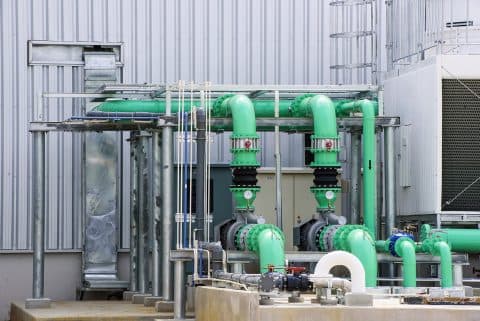In today’s increasingly health-conscious environment, organizations are more aware than ever of the risks associated with Legionella bacteria. This bacterium can lead to serious health issues, including Legionnaires' disease, a severe form of pneumonia. Consequently, businesses and institutions are mandated to ensure their water systems are free from Legionella contamination. This necessity has amplified the demand for legionella training courses online, enabling professionals to understand the risks and implement effective control measures.
The Importance of Legionella Training
Legionella training is not merely a regulatory requirement; it is a critical component of public health protection. Understanding how Legionella thrives and spreads is essential for anyone responsible for managing water systems in commercial, residential, or public buildings. With water systems being a breeding ground for such bacteria, a comprehensive training program equips individuals with the knowledge to identify potential risks and implement effective remediation strategies.
Moreover, the online format of these training courses offers flexibility and accessibility. Participants can learn at their own pace, which is particularly beneficial for busy professionals juggling multiple responsibilities. This mode of learning also allows for a variety of multimedia resources, including videos, quizzes, and interactive modules, making the training engaging and effective.
Key Components of Online Legionella Training
A well-structured legionella training course online typically covers several key components. Firstly, learners are introduced to the biology of Legionella, including its life cycle, growth conditions, and the environments in which it is commonly found. Understanding these fundamentals is crucial for recognizing where and how the bacteria can proliferate within water systems.
Following this foundational knowledge, the course delves into risk assessment strategies. Participants learn how to evaluate their water systems for vulnerabilities that could lead to Legionella outbreaks. This includes understanding the significance of temperature control, water stagnation, and biofilm development.
Additionally, the training usually encompasses the legal and regulatory framework surrounding Legionella management. Familiarizing oneself with local and national legislation helps organizations remain compliant and avoid penalties. This section often highlights best practices for monitoring and maintaining water systems, ensuring that participants leave the course equipped with actionable insights.
Choosing the Right Online Training Course
With a plethora of options available, selecting the right online training course can be daunting. Factors to consider include the course content, the credentials of the instructors, and reviews from previous participants. A reputable course will not only provide comprehensive information but also include case studies and practical examples to illustrate key points.
Furthermore, the duration and format of the training can significantly affect its effectiveness. Short, concentrated courses may be appealing, but they might not cover all necessary topics in depth. Conversely, longer courses may provide a more thorough understanding but could be overwhelming. Finding a balance that suits both the learner’s schedule and the depth of content is crucial.
Another important aspect is the availability of certification upon completion. A recognized certification not only validates the training received but also enhances the professional credentials of the participant. Employers often look for certified individuals when hiring for positions that require knowledge of Legionella management, making this an essential consideration.
Trends in Legionella Training
As awareness of Legionella continues to grow, so do the training options available. Recent trends indicate a move towards more interactive and engaging online formats. Virtual simulations and real-world scenarios are becoming commonplace, allowing participants to apply their knowledge in a controlled environment. This hands-on approach enhances retention and prepares individuals for actual situations they may encounter on the job.
In addition, the integration of technology into training programs is on the rise. Mobile-friendly courses, gamification elements, and the use of virtual reality are transforming traditional training into immersive learning experiences. These innovations not only make learning more enjoyable but also help to solidify understanding through practical application.
Moreover, the emphasis on continuous education is increasing. As regulations evolve and new guidelines are established, ongoing training becomes essential. Many organizations are now incorporating refresher courses and advanced training modules to ensure their staff remains knowledgeable and compliant with the latest standards in Legionella management.
Conclusion
In summary, the importance of Legionella training cannot be overstated. As organizations strive to ensure the safety of their water systems, investing in a quality legionella training course online is a critical step toward compliance and public health protection. The flexibility and accessibility of online training make it an ideal solution for busy professionals seeking to enhance their knowledge and skills. For those looking to embark on this educational journey, NATAS ASBESTOS: TRAINING LTD offers comprehensive courses designed to meet the needs of various industries, ensuring participants are well-equipped to tackle the challenges associated with Legionella management.





Comments